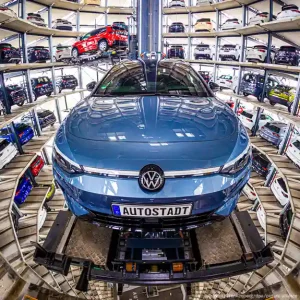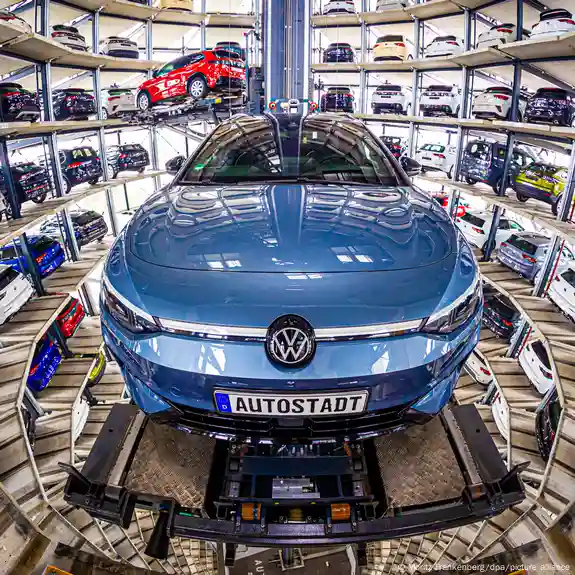German auto giant Volkswagen has said it aims to cut billions from its budget amid a financial crisis at the company. Workers have promised to meet this plan with mass resistance.

Workers with labor union IG Metall took an extraordinary step on Wednesday, offering to take pay cuts in order to avoid mass lay-offs and plant closures planned by German carmaker Volkswagen.
Ahead of the next round of collective bargaining talks, the union and the VW workers’ council offered to reduce labor costs by €1.5 billion ($1.6 billion). In exchange, employees were seeking guarantees on job security and the future of the company’s nine factories across Germany.
If their demands aren’t met, the union has indicated that a major strike could be imminent.
“Because sustainable solutions are needed, we are now going on the offensive and presenting a solution concept,” said workers’ council chairwoman Daniela Cavallo. “It is a counter-model to the board of management’s plan to cut jobs, which prevents the future instead of creating it.”
Cavallo also suggested that upper management waive their bonuses to alleviate the company’s dire financial straits.
Why is Volkswagen struggling?
In September, the German auto giant announced that it would close three plants as part of widespread cost-cutting measures and nix a longstanding, generous pension plan.
Labor groups have vowed to meet sweeping lay-offs with mass resistance.
Since 2019, German car companies have shed about 46,000 jobs amid a shift to producing more electric vehicles. Competition from cheaper Chinese EVs and a general economic malaise in Germany has further hurt the auto industry.
In October, Volkswagen announced a 64% profit slump and its decision to close three plants, prompting an outcry from workers.
The company says it intends to cut some €18 billion from its budget.
Credit: DW News


